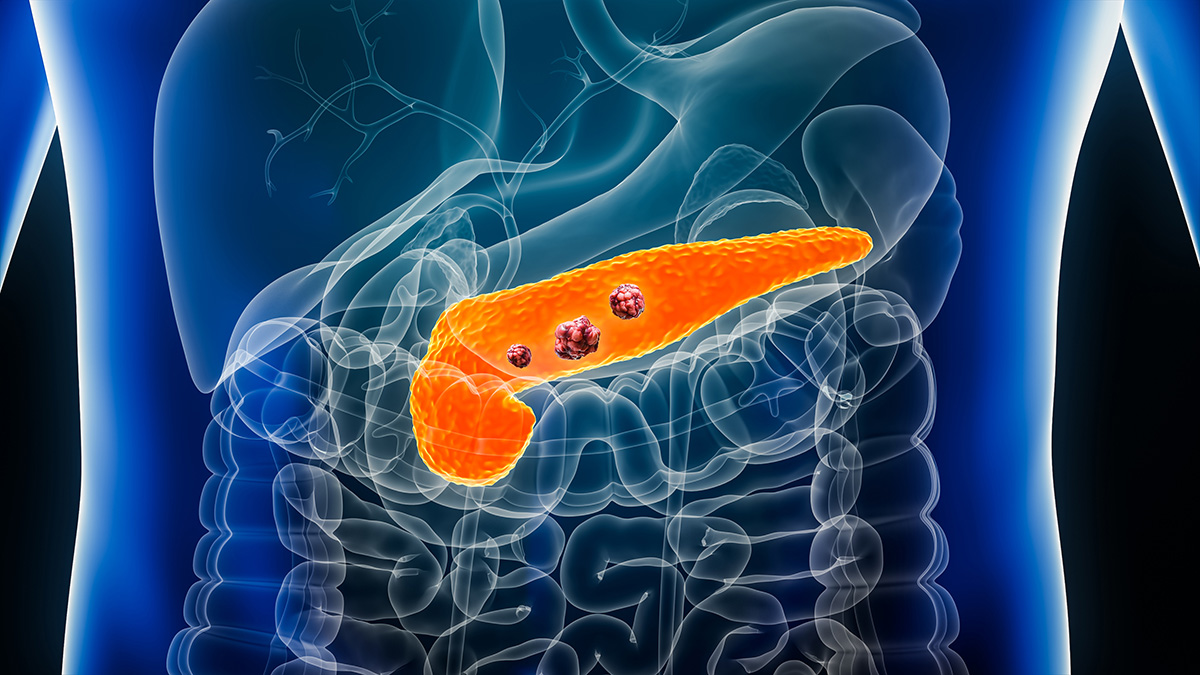
November is Pancreatic Cancer Awareness Month, an important time to highlight the potential of cell and gene therapy science to transform how patients with pancreatic cancer are treated.
According to the American Cancer Society, approximately 64,000 people in the United States will be diagnosed with pancreatic cancer in 2023. Approximately 51,000 people in the U.S. die of this disease each year, accounting for an estimated 7% of all cancer deaths in the country.
An aim of Pancreatic Cancer Awareness Month is to spread awareness about current efforts to bring new therapies to patients, and Alliance for Cancer Gene Therapy (ACGT) is a leader in helping scientists advance therapies that empower the immune system to destroy tumors. Please sign up for the foundation’s monthly email newsletter for updates on cell and gene therapy research, new grants awarded by ACGT, and uplifting survivor stories.
Current survival statistics for pancreatic cancer.
According to Johns Hopkins Medicine, the 5-year survival rate for pancreatic cancer is between 5% and 10%, one of the lowest survival rates compared to other types of cancer. A key reason for this is the difficulty treating this tumor with standard options such as surgery, chemotherapy and radiation.
Only 15%-20% of cases can be treated with surgery. Most patients with stage 3 or stage 4 pancreatic cancer, which is when the disease is most often diagnosed, do not qualify for surgery.
Even patients who can have surgery often experience recurrence, which is when the disease returns and tumors grow back. The 5-year survival rate for patients whose tumors were removed with surgery is between 20% and 30%.
Chemotherapy and radiation can help some patients, but for most, these therapies cannot control the spread of the tumor. This is why there is a dire need to develop and advance new therapeutic options to treat this disease.
The potential to transform pancreatic cancer treatment.

Cell and gene therapy has the ability to harness the power of the human immune system to find and destroy cancer cells without harming healthy tissue or organs (like chemotherapy and radiation often do) or causing lifelong complications from an invasive surgery. Cell and gene therapy can also create a “living medicine” that guards against cancer even while the patient is in remission, which can reduce the chances of a recurrence.
The FDA has approved several CAR T-cell therapies – a type of cell and gene therapy – for blood cancers such as leukemia, lymphoma, and multiple myeloma. However, there is only one cell and gene therapy currently approved for a solid tumor (a rare melanoma of the eye) and none yet for pancreatic cancer.
For more than two decades, ACGT has been a leader in supporting research to develop cell and gene therapies for all types of cancer. A funding priority of ACGT is to advance this science from the labs to the clinics for people diagnosed with pancreatic cancer.
How ACGT is working to advance cell and gene therapy research for pancreatic cancer.
Alliance for Cancer Gene Therapy is the first and only non-profit organization solely dedicated to funding cell and gene therapy research for cancer, including pancreatic cancer. In the last decade, ACGT has awarded $2 million toward research into developing new pancreatic cancer therapies.
Just in the past few years, ACGT has provided multi-year grants to three scientists conducting cell and gene therapy research that focuses on pancreatic cancer:
- Amer H. Zureikat, MD, FACS, of University of Pittsburgh School of Medicine, who is researching the use of tumor-infiltrating lymphocytes for this cancer
- Sidi Chen, PhD, of Yale University School of Medicine, who is researching how to activate specific genes to help CAR T cells fight cancer
- Matthias Stephan, MD, PhD, of Fred Hutchinson Cancer Research Center, who is using ACGT grant funding to deliver tumor-specific T-cell receptors and a vaccine into the immune system to help it fight cancer
Another of ACGT’s 63 Research Fellows is Herbert Zeh, MD, FACS, of the University of Texas Southwestern Medical Center. He received funding from the foundation in 2012, when he was working at the University of Pittsburgh, to develop an oncolytic virus to treat pancreatic cancer. This is further proof of ACGT’s commitment to finding cures for this aggressive solid tumor.
To view other ACGT blogs about progress being made in cancer cell and gene therapy research, go to our news section on the ACGT website.
Page sources
- Key Statistics for Pancreatic Cancer. American Cancer Society. Retrieved from: https://www.cancer.org/cancer/types/pancreatic-cancer/about/key-statistics.html. Accessed: 09/29/2023.
- Pancreatic Cancer Prognosis. Johns Hopkins Medicine. Retrieved from: https://www.hopkinsmedicine.org/health/conditions-and-diseases/pancreatic-cancer/pancreatic-cancer-prognosis. Accessed: 09/29/2023.



